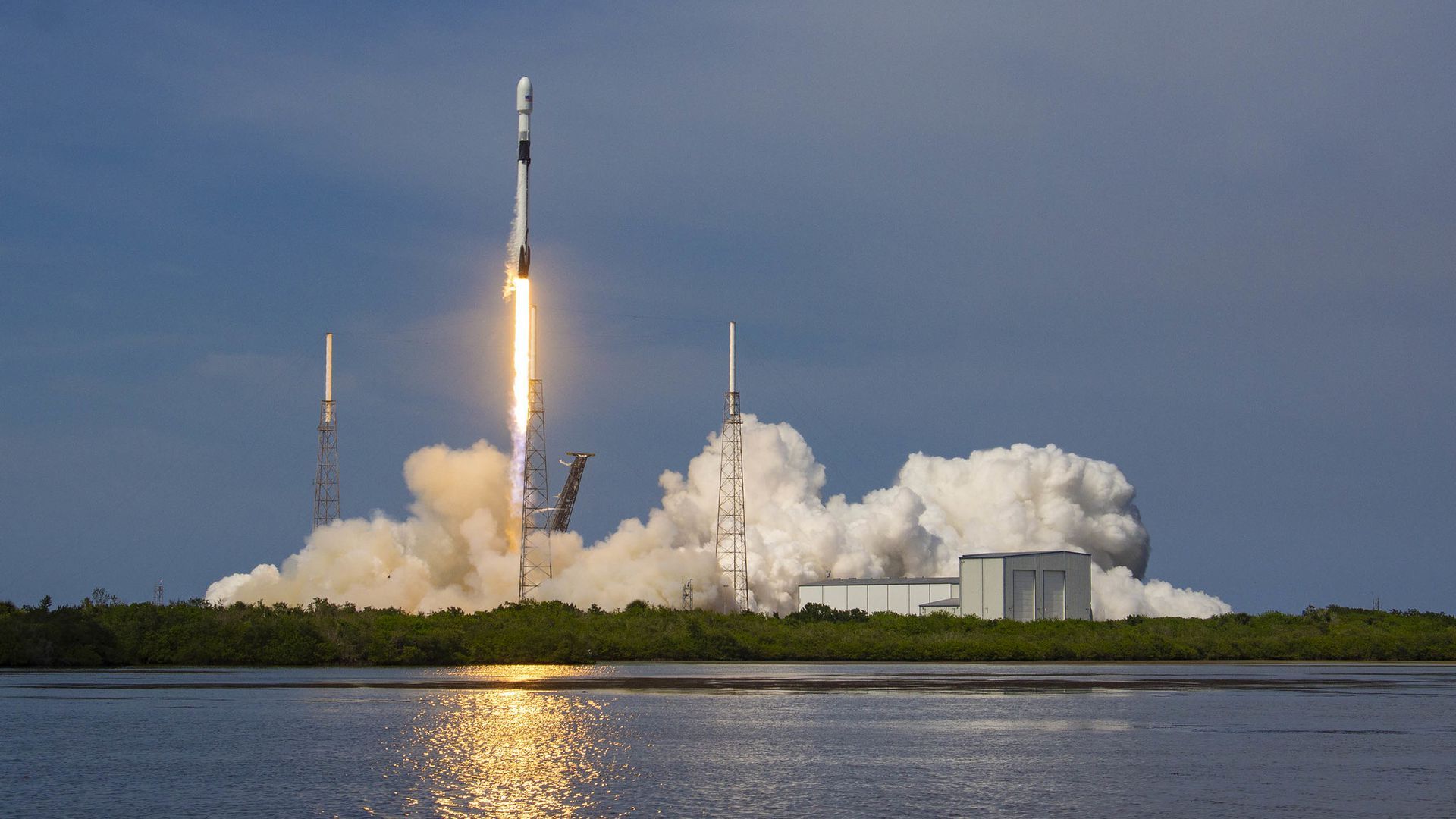SpaceX and ULA pull in huge defense contracts
Add Axios as your preferred source to
see more of our stories on Google.

A SpaceX Falcon 9 rocket takes flight. Photo: SpaceX
The Space Force's announcement last week that United Launch Alliance and SpaceX will launch expensive spy satellites and other military payloads brings a long and often fierce battle for government funds to an end — at least for now.
Why it matters: This type of government money — particularly in light of the economic downturn caused by the coronavirus pandemic — is key for space companies that often work on thin margins.
The state of play: ULA was awarded the bulk of the funds — $337 million — for two missions due to launch in 2022, with SpaceX winning $316 million for one mission launching that year.
- Northrop Grumman and Blue Origin both submitted bids for this competition — called the National Security Space Launch Phase 2 Launch Service Procurement — but neither company received funds this time around.
- SpaceX and ULA are already providing national security launches for the government, while Northrop Grumman and Blue Origin are building new, yet-to-be-flown rockets, called OmegA and New Glenn respectively, that would be used for these launches.
The backdrop: Space companies fought hard for these contracts, working to gain the upper hand over their competitors.
- Blue Origin filed a protest in 2019, saying the government's methods for picking winners were flawed and favored ULA and SpaceX.
- SpaceX, which didn't receive money as part of an award in 2018, argued that put the company at a disadvantage for winning a Phase 2 contract.
What's next: "We remain confident New Glenn will play a critical role for the national security community in the future due to the increasing realization that space is a contested domain and a robust, responsive, and resilient launch capability is ever more vital to U.S. security," Blue Origin CEO Bob Smith said in a statement.
- All four companies will also have a chance to compete under Phase 3 of the competition.
